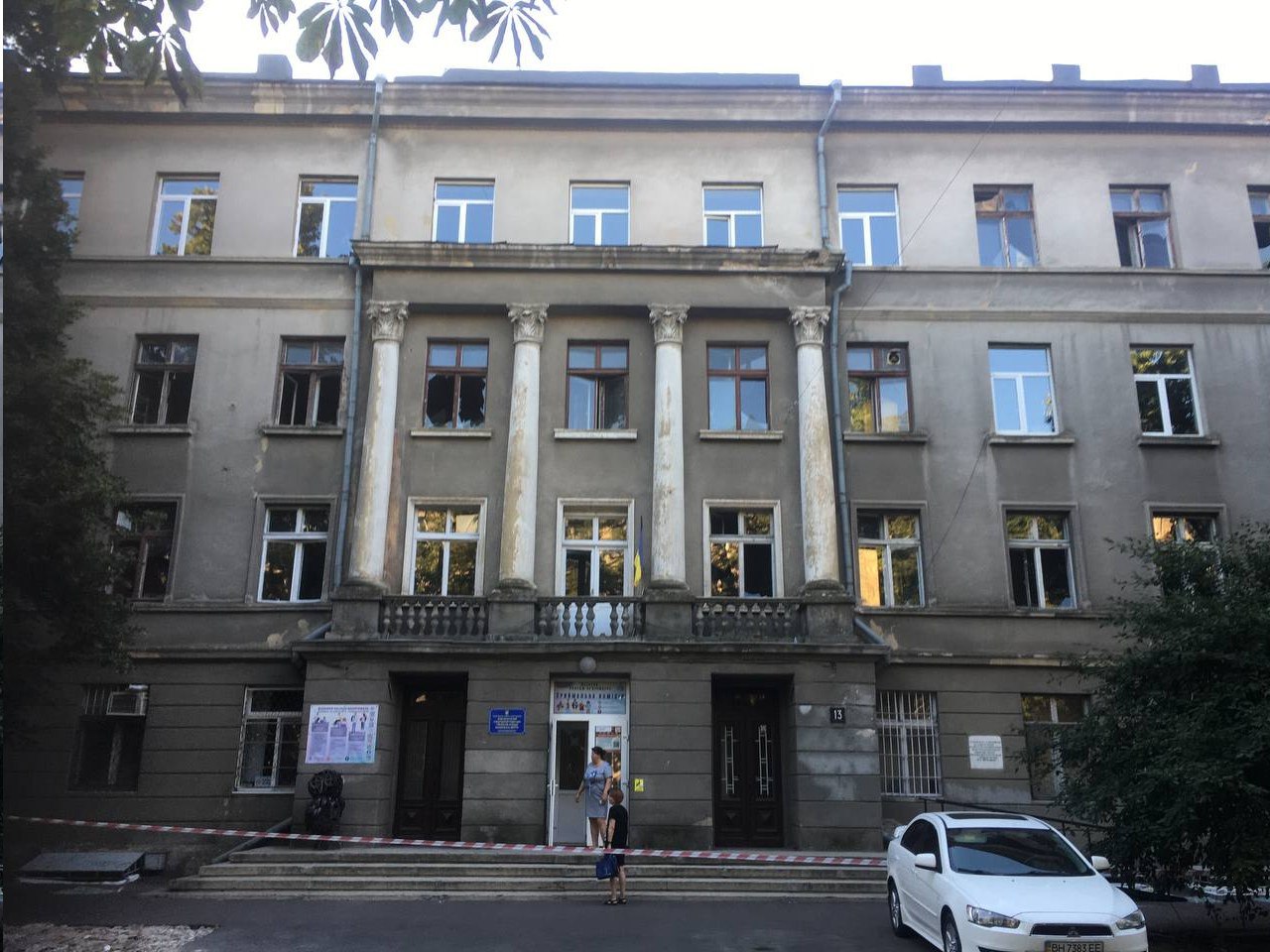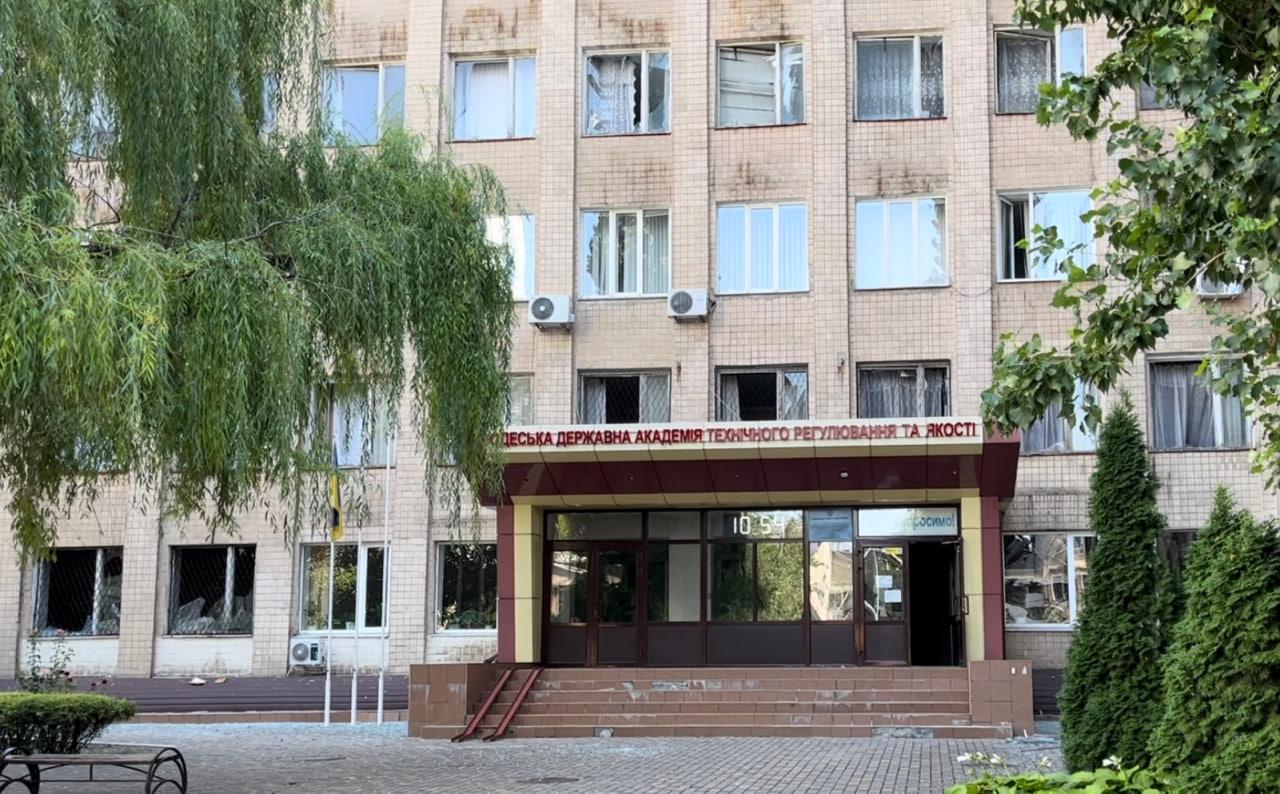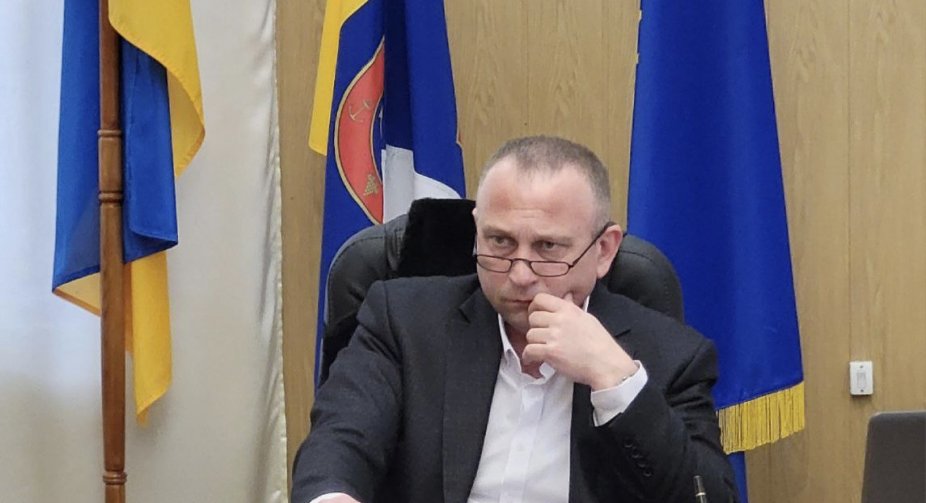
As we recently reported, on August 14, Odesa suffered another powerful rocket attack, during which 7 educational institutions were damaged, one of which is an architectural monument.
Front News Ukraine managed to talk to the rector of the State University of Intellectual Technologies and Communications, Oleksandr Nazarenko, who spoke about the consequences of the shelling for the university.
Oleksandr Askoldovych, what is the situation at the university now?
On the night of August 14, there was a hit near the main building of our university. We don't know whether it was a rocket or a so-called "shahed", but both educational buildings and student dormitories were damaged. The main problem was the breaking of a large number of glass structures (windows, doors, stained glass windows, etc.). First of all, we organized the dismantling of window fragments and installation of tape by our employees. In the main building, we are replacing window elements. By the way, the main building has the status of landmark of history and architecture of local importance. It was completely rebuilt after the war, in 1953, thanks to the joint efforts of teachers and students. 80 years later, we are forced to rebuild our classrooms again after enemy attacks.
How did students react to this and did the situation affect the admission process?
The admission campaign is going on as usual, we did not stop the work of the admission committee for a single day. As for the students, we also invited them to join the cleanup, as our employees need help in quickly clearing the debris. We have also announced a fundraiser for the restoration of the university to our charity fund, where anyone can make a donation.
In your opinion, could the university have become one of the targets of a deliberate attack?
On the one hand, it is hard to call our university a logical target: there is nothing military on the territory of the university: no weapons, no soldiers, no equipment. We are an object of civilian infrastructure.
On the other hand, the fact is that, according to our profile, we have been training communication specialists for over a hundred years. Today, the demand for IT specialists is up to 60 thousand people per year. Our graduates are desirable specialists in such structures as the Administration of the State Service for Special Communications and Information Protection of Ukraine, the State Enterprise "Ukrainian State Center of Radio Frequencies", the National Council on Television and Radio Broadcasting, the Ministry of Infrastructure of Ukraine, the Ministry of Digital Transformation of Ukraine, the State Emergency Service of Ukraine... In recent years, we have also become a forge of personnel in cybersecurity and related fields. A large number of employees of the Security Service of Ukraine, the Cyber Police, the Defence Intelligence of Ukraine and other special services are graduates of our university. In addition, some representatives of our university often act as consultants, and students undergo practical training in the departments I mentioned. We also have an optional class in robotics, where students learn how to work with drones, model and manufacture components on 3D printers.
In your opinion, are there any further threats to the SUITC?
The threat to our entire country, to every city and town, hangs over every day, but we have implemented the maximum set of security measures. Today we are one of the most protected institutions in the city. We have an equipped multi-sectional bomb shelter, we maintain our energy independence with the help of industrial generators, and we have an autonomous Internet. The State University of Intellectual Technologies and Communications has become a member of the "WiFi in Shelters" initiative, which was launched by the Ministry of Digital Transformation of Ukraine and the Ministry of Education and Science of Ukraine. The project of deploying the network in the SUITC was implemented by Huawei Ukraine with the assistance of the Foundation for Educational Initiatives. We have been operating an invincibility point on the basis of such infrastructure for a long time. Moreover, it is regularly used not only by our students and employees, but also by residents of neighboring apartment buildings. Everyone knows that we are a certain island of safety and energy independence in the center of Odesa. In addition, we have provided our students with a full range of opportunities for distance education. Therefore, I do not see any threats directly to the educational process.
I would like to note that all wars end eventually, and knowledge is eternal!
Earlier this year, a rocket attack was launched on Shevchenko Avenue in Odesa, where another university, Odesa Polytechnic University, was damaged. The blast wave went through the building, breaking windows and some walls.

